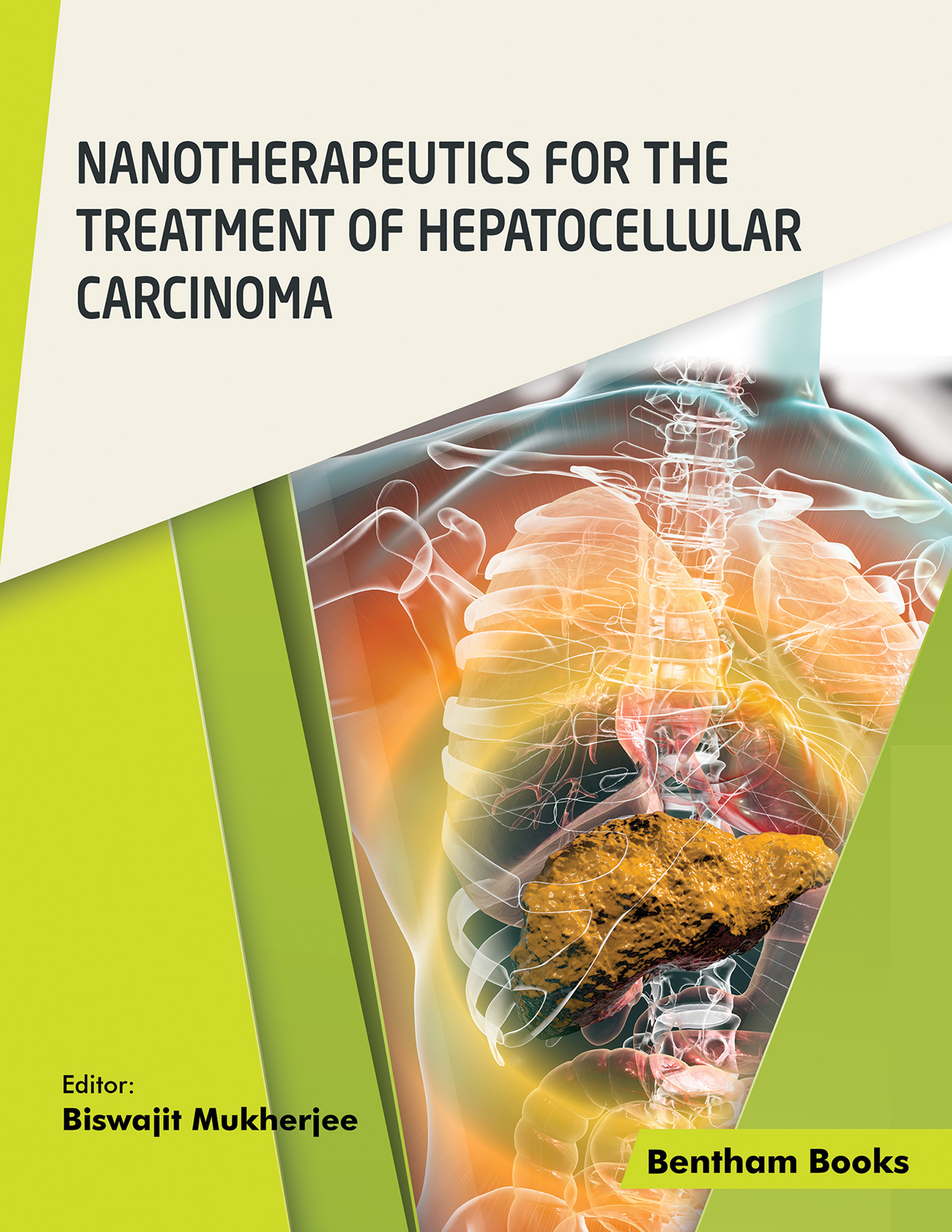Potential Nanoformulation Approaches for Delivery of HCC Therapeutic Agents

- Authors: Maria Lucia A.D Lestari1, Biswadip Sinha2
-
View Affiliations Hide Affiliations1 Faculty of Pharmacy, Department of Pharmaceutical Science, Universitas Airlangga Surabaya,Surabaya, Indonesia 2 Institute of Pharmacy, Department of Pharmaceutics, Biopharmaceutics & Nutricosmetics, FreieUniversity of Berlin, Berlin, Germany
- Source: Nanotherapeutics for the Treatment of Hepatocellular Carcinoma , pp 384-448
- Publication Date: March 2022
- Language: English
Hepatocellular carcinoma (HCC) is a major cancer type worldwide. The major challenge with HCC is that it is usually detected at an advanced stage. After the launch of the first drug Sorafenib against HCC in 2007, several other small molecules and monoclonal antibody-based drugs have been launched to fight against HCC. However, the survival rate in HCC is still very poor. This indicates that there is still a necessity for more effective therapy or to increase the efficacy of the existing therapy. Nanoformulation approach refers to such formulation approaches where the particle size of individual particles or vesicles in a formulation range between 1-1000 nm. The individual particle or vesicle could be either single drug particles or nanosphere/nanocapsules having drug entrapped in polymer/lipid matrix or drug connected with metal or metal oxide core. The idea of using nanoformulations for drug targeting first came around the 1950s. Since then, countless research groups across the world have advanced the field to the extent that several products based on the nanoformulation approach have been launched on the market. Besides targeting, nanoparticles can also help circumvent biopharmaceutical challenges of drugs, such as dissolution, limited oral bioavailability issue, or formulating “hard to solubilize” types of molecules for parenteral formulation. This chapter will review different nanoformulation approaches that can be potentially applied for HCC therapy, their manufacturing process, and therapeutic benefits. We will review the application of different nanoformulation approaches for HCC specific therapeutic agents.
-
From This Site
/content/books/9789815039740.chap10dcterms_subject,pub_keyword-contentType:Journal -contentType:Figure -contentType:Table -contentType:SupplementaryData105

